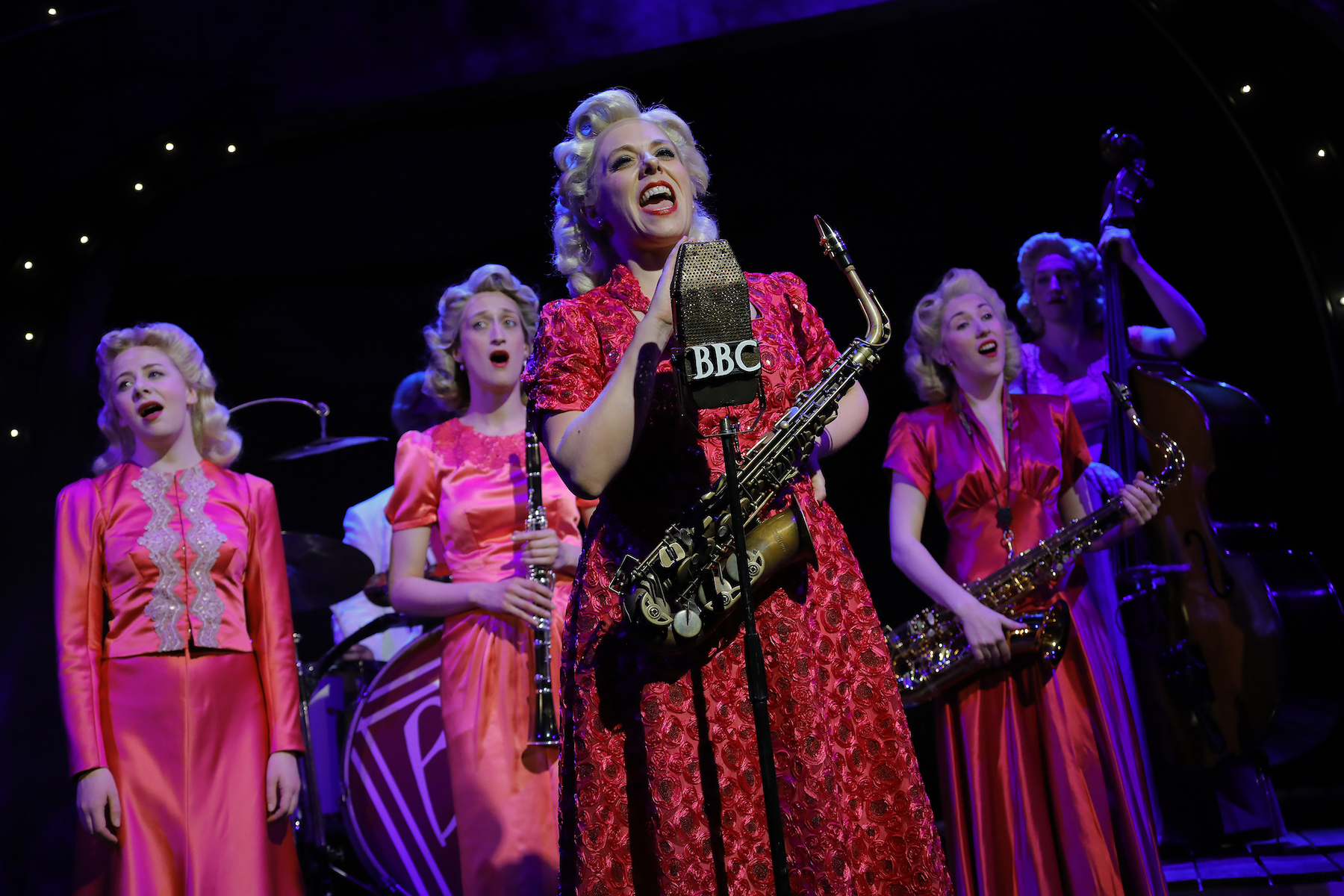This is a show to fall in love with. From the moment Liz, played by Lynwen Haf Roberts, walks out onto the set of a bombed variety theatre in 1943 as narrator, you know that you are in for a memorable journey. Her haunting reminiscing of her Nan’s story takes you back to when she auditioned for an all-girls band during World War Two. Written by the late BAFTA award-winning playwright, Alan Plater, and set in his beloved Northern England, Blonde Bombshells of 1943 brings together different personalities and walks of life through the music of the era, featuring big dance band hits by Glenn Miller, George Formby and Fats Waller.
Turned into a TV-film in 2000, the stage show requires a talented cast of ladies who are not only fine actors but also talented musicians and singers. Fortunately, the ensemble at Pitlochry have all of that and more. They play multiple instruments from ukulele to clarinet, drums to double bass – the list goes on. They harmonise The Andrews Sisters perfectly, deliver a classic torch song and touch the heart strings with wistful love songs. Gradually the band come together including a singing nun, a posh military tart, and last of all a man – played in fine form by Alexander Bean not afraid to don a wig and a frock of sorts.
Plater’s dialogue remains authentic and warm. It perfectly reflects within the rehearsal room, the dynamics of women dealing with the horrors of the wartime situation and their personal tragedies, all brought together by their love of music.
The whole ensemble give fine performances. Tilly-Mae Millbrook playing Miranda is both naïve, annoying and funny, while Alicia McKenzie stuns as May with her classical and jazz piano playing. Then there’s Fiona Wood, who gets all the laughs as the nun who can do George Formby impersonations. Holding it together are the duo of indomitable band leader and jaded bass player, Emilie Patry and Wendy Paver. The distinction in their immediately recognisable characters is down to clever writing and accomplished performances
Ben Occhipinti’s direction is assured, and he knows what the predominately older audience want. In these fractious times a charming reminder of how women coped in times of war receives a warm welcome. Moreover, with women rightly demanding better roles in modern drama, this show certainly satisfies. And how can you not enjoy songs such as “Don’t Sit Under the Apple Tree” and “When I Grow Too Old to Dream” without it touching your heart?
